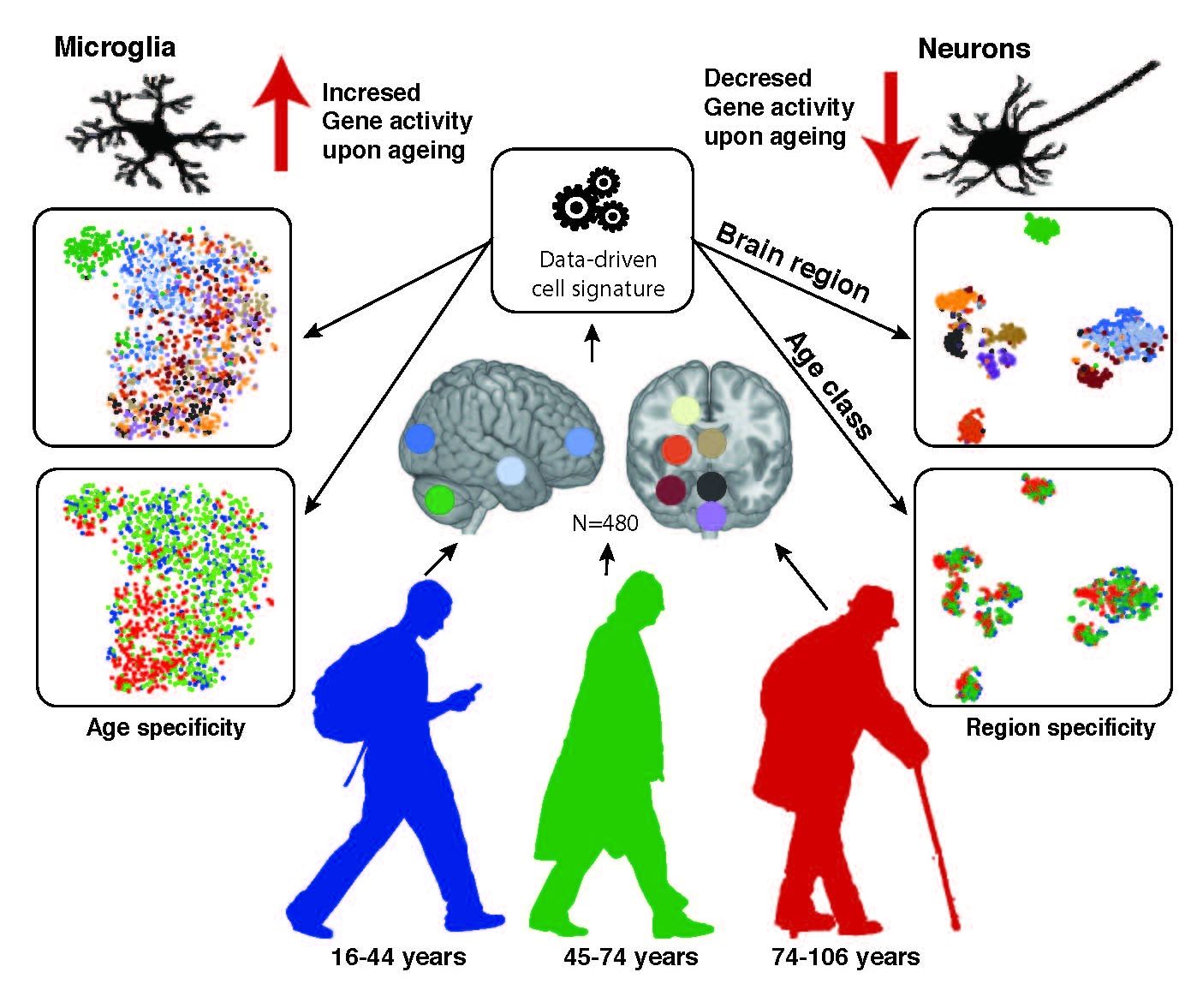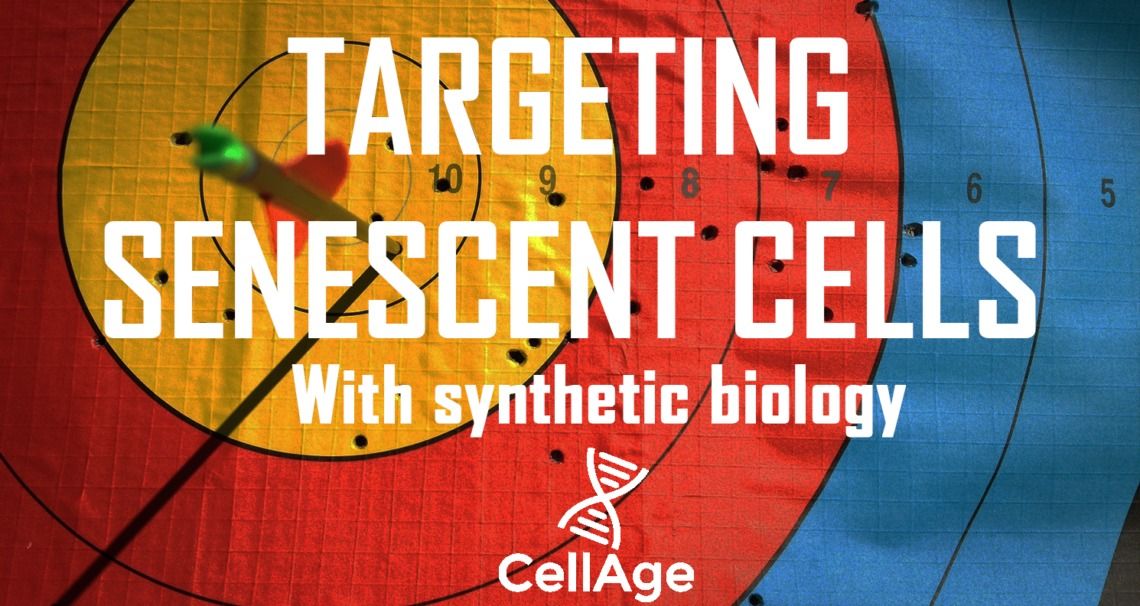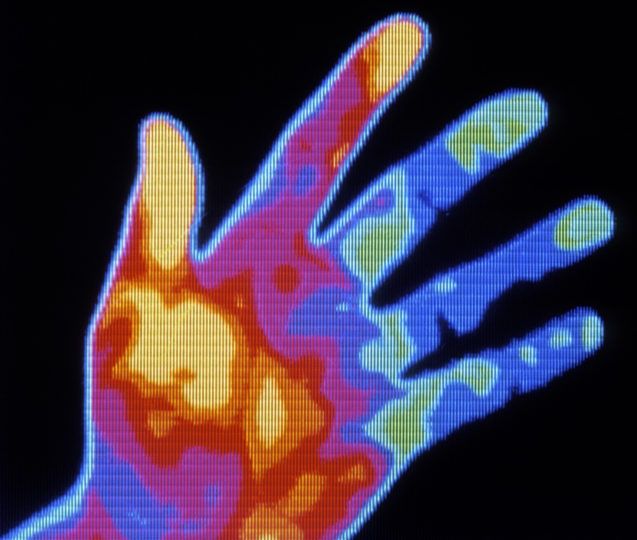Archive for the ‘biotech/medical’ category: Page 2546
Jan 11, 2017
Glia, not neurons, are most affected by brain aging
Posted by Steve Hill in categories: biotech/medical, life extension, neuroscience
The microglia are central to aging in the brain and science is already finding ways to reverse it like introducing young microglia to the brain to remove plaques associated with Alzheimers. Brain aging is not a one way process!
The difference between an old brain and a young brain isn’t so much the number of neurons but the presence and function of supporting cells called glia. In Cell Reports on January 10, researchers who examined postmortem brain samples from 480 individuals ranging in age from 16 to 106 found that the state of someone’s glia is so consistent through the years that it can be used to predict someone’s age. The work lays the foundation to better understand glia’s role in late-in-life brain disease.
“We extensively characterized aging-altered gene expression changes across 10 human brain regions and found that, in fact, glial cells experience bigger changes than neurons,” says Jernej Ule, a neurobiologist at the Francis Crick Institute and the University College London, who led the study with departmental colleague Rickie Patani (@PataniLab) and first author Lilach Soreq. “There’s quite a bit of regional information that will be of interest to different people—for example some will notice a very unique pattern of astrocyte-specific changes in the substantia nigra—and we provide a lot of data that still needs to be analyzed.”
Continue reading “Glia, not neurons, are most affected by brain aging” »
Jan 11, 2017
Addressing Naturalistic Objections to Extending Healthy Human Life Spans
Posted by Steve Hill in categories: biotech/medical, computing, life extension, neuroscience
Playing God is a common objection to developing technologies to increase human lifespan and yet it is never used in relation to current therapies already available.
Here I’ll point out another of the articles going up at the Life Extension Advocacy Foundation, this time on the topic of the naturalistic fallacy where it occurs in opposition to healthy life extension. Our community would like to build medical therapies that address the causes of aging, thereby ending age-related disease and greatly extending healthy human life spans. It has always surprised me to find that most people, at least initially, object to this goal. It seems perfectly and straightforwardly obvious to me that aging to death, suffering considerably along the way, is just as much a problem to be overcome as any other medical condition that causes pain and mortality. Yet opposition exists, and that opposition is one of the greatest challenges faced when raising funding and pushing forward with research and development of rejuvenation therapies.
When it comes to treating aging as a medical condition the naturalistic fallacy is voiced in this way: aging is natural, what is natural is good, and therefore we shouldn’t tamper with aging. If you look around at your houses, your computers, your modern medicine, and consider that such an objection is perhaps just a little late to the game, and hard to hold in a self-consistent manner, then you’re probably not alone. Notably, the same objection is rarely brought up when it comes to treating specific age-related diseases, or in the matter of therapies that already exist. People who are uncomfortable about radical changes to the course of aging and who speak out against the extension of human life are nonetheless almost all in favor of cancer research, treatments for heart disease, and an end to Alzheimer’s disease. Yet age-related diseases and aging are the same thing, the same forms of damage and dysfunction, only differing by degree and by the names they are given.
Continue reading “Addressing Naturalistic Objections to Extending Healthy Human Life Spans” »
Jan 11, 2017
Synthetic biology could combat the aging process
Posted by Steve Hill in categories: bioengineering, biotech/medical, life extension
The Cellage synthetic biology digest.
The field of synthetic biology holds the potential to treat a variety of aging processes and treat age-related diseases. Synthetic biology allows biologists to create new functions in cells by creating synthetic cellular programs and could allow us to combat age-related diseases in ways never before considered.
#aging #crowdfundthecure
Continue reading “Synthetic biology could combat the aging process” »
Jan 11, 2017
A World-Renowned Futurist Reveals The Hotel Of The Future
Posted by Karen Hurst in categories: biotech/medical, computing, virtual reality
His vision is definitely achievable.
The future of airport transfer—in a pod.
World-renowned global futurist Dr. James Canton envisions hotel experiences that include supersonic travel and DNA-driven spa treatments, so what can we expect in the next decade? Canton, a former Apple Computer executive, author and social scientist, worked in conjunction with Hotels.com, to present the Hotels of the Future Study at a recent conference in San Francisco. In the study he describes hotels with everything from RoboButlers and virtual reality entertainment to hotel restaurants based on gourmet genomics and the emergence of neurotechnology to make sleep more refreshing. Canton, who has advised three White House Administrations and over 100 companies, believes these megatrends will shape the future of the hotel experience and that the RoboButler is the change we will most likely see first. Although, he also notes that plans are already underway for a supersonic hyperloop route from Los Angeles to New York City.
Continue reading “A World-Renowned Futurist Reveals The Hotel Of The Future” »
Jan 11, 2017
Why we need to keep an eye on whether a blood infection in cattle is linked to breast cancer in humans
Posted by Karen Hurst in categories: biotech/medical, food
Pretty wild; blood infections in cattle may have a possible link to breast cancer in humans.
Meredith Frie, Michigan State University
Humans began domesticating animals for food over 10,000 years ago, cultivating a close relationship with animals over the following millennia. Like humans, animals can get sick, and sometimes infections pass between humans and animals. Some of these infections, like ringworm, are mostly harmless, while others, like bovine tuberculosis, are extremely serious.
But how do we find out if these infections pose a risk to humans? I study dairy cows infected with bovine leukemia virus (BLV), which is found in most of the dairy herds in the U.S. Scientists are trying to figure out if BLV infects humans and, if it does, whether there is a link between BLV and breast cancer.
Jan 10, 2017
New active filaments mimic biology to transport nano-cargo
Posted by Karen Hurst in categories: biotech/medical, nanotechnology, particle physics, robotics/AI
Very interesting read. The researchers created a completely artificial microscopic transport system mimicking the human body. With this technology we’re going to be able to address many areas of healthcare as well as some areas of AI.
Inspired by micro-scale motions of nature, a group of researchers at the Indian Institute of Technology Madras and the Institute of Mathematical Sciences, in Chennai, India, has developed a new design for transporting colloidal particles, tiny cargo suspended in substances such as fluids or gels, more rapidly than is currently possible by diffusion.
Fluid friction determines micro-scale inertia in fluid. This means, for instance, blood cells swimming within blood encounter roughly the same amount of drag that a human would experience attempting to swim through molasses.
Continue reading “New active filaments mimic biology to transport nano-cargo” »
Jan 10, 2017
Synthetic gene circuits: Insulin self-regulation
Posted by Karen Hurst in categories: biotech/medical, innovation
Nice breakthrough.
A self-adjusting synthetic gene circuit senses and reverses insulin resistance in animal models of diabetes and obesity.
People with type 2 diabetes — an obesity-associated disease that is a major cause of morbidity and mortality worldwide — develop insulin resistance. The condition can be counteracted by adiponectin, a cytokine secreted by adipocytes that promotes insulin sensitivity and regulates glucose metabolism via the receptors AdipoR1 and AdipoR2 (ref.). In fact, by mimicking adiponectin, the AdipoR-activating small molecule AdipoRon improves glucose and lipid metabolism in mice. Owing to the capacity of adipocytes to regulate insulin and glucose pathways, considerable efforts have been devoted to taking advantage of adiponectin for clinical applications. Writing in Nature Biomedical Engineering, Martin Fussenegger and colleagues demonstrate the therapeutic benefits of a self-adjusting synthetic gene circuit designed to sense and reverse insulin resistance in animal models of diabetes and obesity.
Jan 10, 2017
Positron Dynamics Paves the Road to the Final Frontier
Posted by Andreas Matt in categories: biotech/medical, space travel
Ever since Jules Verne and before — perhaps as early as the 5th century B.C. — writers, philosophers and scientists have brought fantasies to life about spaceships carrying humans to other planets, solar systems and galaxies.
Of all the potential targets, only the moon thus far has hosted Earthling “boots on the ground.” Next on most wish lists is Mars. NASA’s tentative schedule designates the first manned mission sometime around 2030.
Aside from the formidable task of designing a safe, efficient vehicle to transport people and supplies, such a mission — depending on the positions of the two planets and other logistics — would take in the neighborhood of nine months each way. Not only is that a long trip, but it would also expose the human body to ambient space radiation for close to a year. Can’t this travel time, many have asked, be cut down somehow?
Continue reading “Positron Dynamics Paves the Road to the Final Frontier” »
Jan 10, 2017
Thanks to AI, Computers Can Now See Your Health Problems
Posted by Shane Hinshaw in categories: biotech/medical, genetics, health, robotics/AI
Machine learning is helping doctors diagnose things like genetic disorders, Alzheimer’s, and autism faster than ever before.
















